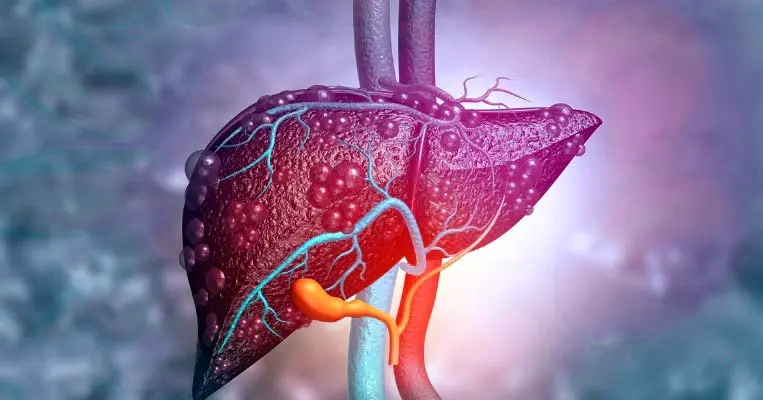Imagine your liver as the body's ultimate detox centre, a tireless worker that filters blood, processes nutrients, produces bile for digestion, and stores energy. It's truly amazing! When something is off with your liver, it often sends out signals, and one of the most common signals doctors look for is elevated liver enzymesin your blood tests.
Now, don't panic if you hear this term. Elevated enzymes don't always mean severe liver disease. Think of it like a smoke alarm: it tells you there might be a fire, but it could also be burnt toast. However, just like a smoke alarm, it's a signal that needs your attention.
What Exactly Are Liver Enzymes, anyway?
Your liver cells contain various proteins called enzymes. These enzymes are like tiny workers inside the cells, helping the liver do all its important jobs, like breaking down chemicals and making new substances.
The two main enzymes doctors usually check are:
- ALT (Alanine Aminotransferase): This one is mostly found in the liver. So, if your ALT levels are high, it's a pretty strong sign that something is going on with your liver itself.
- AST (Aspartate Aminotransferase): While AST is also in the liver, it can be found in other places like your muscles and heart. So, if both ALT and AST are high, it points more directly to the liver.
When liver cells are damaged or inflamed, these enzymes leak out into your bloodstream. That's why high levels in a blood test are a red flag – they signal that liver cells might be in distress.
Why Do Liver Enzymes Get Elevated? Common Causes
Many things can cause liver enzymes to rise, some temporary and minor, others more serious. It’s crucial for your doctor to figure out the root cause.
Here are some of the most common reasons:
- Fatty Liver Disease (Non-Alcoholic Fatty Liver Disease - NAFLD): This is increasingly common and often linked to being overweight, obesity, type 2 diabetes, or high cholesterol. Fat builds up in the liver cells, causing inflammation and damage.
- Alcohol: Drinking too much alcohol is a major cause of liver damage, leading to alcoholic fatty liver, alcoholic hepatitis, and eventually cirrhosis.
- Medications and Supplements: Believe it or not, many common prescription and over-the-counter drugs, as well as some herbal supplements, can temporarily or even permanently affect your liver. Always tell your doctor about everything you're taking.
- Hepatitis (Viral Infections): Viruses like Hepatitis A, B, and C can infect the liver, causing inflammation and cell damage. Hepatitis B and C can become chronic and lead to long-term liver problems.
- Certain Medical Conditions: Conditions like celiac disease, Wilson's disease (too much copper), hemochromatosis (too much iron), or autoimmune hepatitis (where your body's immune system attacks your liver) can also cause enzymes to rise.
- Rapid Weight Loss: Sometimes, losing weight too quickly can temporarily stress the liver and elevate enzymes.
- Muscle Damage: Because AST is also in muscles, intense exercise or muscle injuries can sometimes cause a slight, temporary elevation.
- Mononucleosis: This viral infection can also affect the liver and cause enzymes to rise.
Why You Shouldn't Ignore Elevated Liver Enzymes
While the cause might be mild, ignoring elevated liver enzymes isn't a good idea. If the underlying issue isn't addressed, it can lead to more serious liver problems over time.
- Hepatitis: This means inflammation of the liver, which can lead to scarring.
- Fibrosis: This is the beginning of scar tissue forming in the liver.
- Cirrhosis: This is severe, widespread scarring of the liver, which can permanently damage its function and lead to liver failure.
Catching and treating the cause of elevated enzymes early can often prevent these serious complications and help your liver heal.
What Happens Next? Your Doctor's Role
If your blood test shows elevated liver enzymes, your doctor will likely:
- Ask Questions: They'll want to know about your diet, alcohol intake, medications, supplements, recent illnesses, and family history.
- Physical Exam: They'll perform an exam to check for signs of liver problems.
- More Tests: This might include additional blood tests to check for specific viruses, iron levels, or autoimmune markers. They might also order imaging tests like an ultrasound to look at your liver directly.
- Referral: Depending on the findings, they might send you to a specialist, such as a gastroenterologist (a doctor specializing in the digestive system) or a hepatologist (a doctor who focuses specifically on liver diseases).
Remember, addressing elevated liver enzymes is a team effort between you and your healthcare provider.
Making lifestyle changes (like the healthy eating discussed previously!) and following your doctor's advice are key to protecting your liver and your overall health.
Leave a comment
Your email address will not be published. Required fields are marked *



